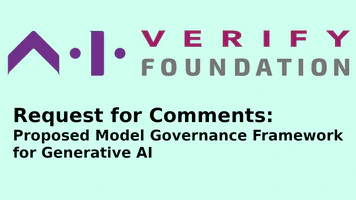
Smart Cities and Artificial Intelligence
Innovation is as inevitable as the sunrise, our urban landscapes are undergoing a transformation of epic proportions. Cities, once concrete jungles, are now morphing into something straight out of science fiction—a harmonious blend of humanity and artificial intelligence. Welcome to the brave new world of AI-controlled smart cities, where efficiency, sustainability, and convenience are the name of the game. But, as with any thrilling ride into the future, there are pitfalls, challenges, and moral quandaries to consider.
The AI-Powered Metropolis
Our adventure begins by defining what exactly makes a city “smart.” According to Wikipedia , a smart city is “an urban area that uses different types of electronic methods and sensors to collect data. Insights gained from that data are used to manage assets, resources, and services efficiently; in return, that data is used to improve the operations across the city.” Picture a place where traffic flows like a synchronized ballet, garbage bins signal when they’re full, and streetlights know when to shine brighter for pedestrians. This is the magic of artificial intelligence seamlessly integrated into urban infrastructure.
But, it’s not all smooth sailing. As AI takes the wheel, we’re faced with questions about privacy and data security. How much information are we willing to share with the city’s digital brain for these conveniences? Striking the balance between efficiency and personal boundaries is an ongoing debate.
For a deeper dive into the importance of data privacy in smart cities, consider exploring Open Access Government’s article , which sheds light on the critical role privacy plays in this evolving landscape.

In this brave new world, AI isn’t just a helpful assistant; it’s also our vigilant guardian. Predictive policing and 24/7 surveillance promise safer streets, but they also raise concerns about civil liberties. How do we ensure that Big Brother doesn’t become a permanent resident in our smart city?
The Sustainable Urban Dream
Sustainability is the heart and soul of these smart cities. Imagine living in a place where energy efficiency is the norm, waste reduction is an art form, and green transportation options abound. AI is a key player in making this dream a reality.
But with great power comes great responsibility. As we chart a course towards sustainability, we must be mindful of the environmental consequences of AI itself and ensure that these technological solutions don’t exacerbate existing problems.
A City That Knows You Better Than You Know Yourself
Personalization is the name of the game. Your smart city knows your habits, preferences, and even your health metrics. It offers tailored services and recommendations, transforming everyday life into a curated experience.
Yet, lurking beneath this convenience is the ever-present question of data privacy. How do we ensure that our personal information is protected from prying eyes? The boundary between convenience and intrusion blurs in this interconnected world.

Education, Innovation, and AI
In AI-controlled smart cities, education and innovation flourish like never before. Learning is tailored to individual needs, and AI-driven innovation hubs push the boundaries of what’s possible. For educational resources on this topic, consider exploring National Geographic’s Smart Cities to delve deeper into the concept of smart cities and their impact on our planet.
As we move towards creating smarter cities, it’s worth mentioning current initiatives like the collaboration between government, private industry, and higher education outlined in GE’s report . Such initiatives are vital for unleashing the full potential of smart cities.
As with any utopian vision, there are shadows to contend with. Social inequities, misinformation, and AI-driven manipulation cast a long, foreboding shadow. Maintaining the ethical compass of AI development becomes paramount.
Our journey culminates in the idea of a harmonious human-AI symbiosis. AI becomes our creative collaborator, enhancing our abilities while preserving human agency and control. Striking this balance will be the ultimate test of our progress.
The Road Ahead
As we peer into this brave new world, it’s clear that the path to AI-controlled smart cities is a winding one. Regulatory challenges and ethical dilemmas loom large. Public perception and acceptance will sway the tide. The future is uncertain, but one thing is clear: we must tread carefully, guided by the lessons of the past.
Follow AI Models on Google News
An easy & free way to support AI Models is to follow our google news feed! More followers will help us reach a wider audience!
Google News: AI Models

